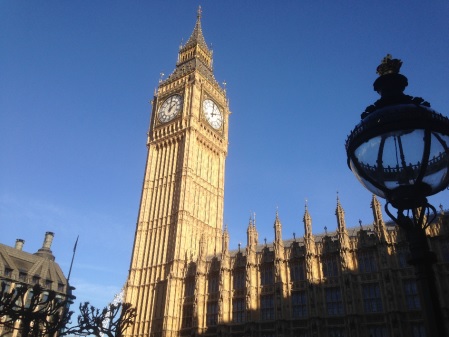Mae'r cynnwys hwn ar gael yn Saesneg yn unig.
As part of a series of blog posts on WISERD’s civil society and animal welfare research, here we look at the views and experiences of civil society organisations (CSOs) lobbying Westminster for better animal welfare. These are emerging findings taken from a series of in-depth interviews with campaigners. This is worth studying because over recent years there has been growing public support for animal welfare and, amongst other things, the present focus tells us how responsive Westminster is to demands for better welfare and redefined human-animal relations. It also provides insights into the policy process during a turbulent period of politics.
Campaigners were generally favourable in their assessment of the All-Party Group for Animal Welfare. Comprised of MPs and peers, its purpose is to keep parliamentarians apprised of animal welfare developments. It has regular meetings and events, runs formal inquiries, gathers evidence, and makes policy recommendations. As one interviewee said, its “a forum where you can have dialogue with the people whose behaviour you want to change”. Another said “we meet in person and just campaign around there… We get in touch with civil servants… we’re also part of various, different working groups… So, we try and build cross party support… I think that really works for us as well, because it’s an issue that really cuts across the political divide”.
In contrast, interviewees were generally negative in their assessment of lobbying the government. A number pointed to the disproportionate power and patronage of individual politicians to block or advance animal welfare measures. As one observed, “we’ve seen willingness to do things vary a bit depending on who the Prime minister is”. Allied to this, interviewees have noted the influence of the disgraced former prime minister’s wife. One explained “Carrie’s influence. You know, the dynamics have changed a lot since Boris stepped down, so you know, a lot of the [promised animal welfare] initiatives were waylaid [when he resigned]. I think Carrie Johnson did have a huge impact on Boris during his time there”.
Interviewees also condemned government’s tendency to court the press to announce future welfare reforms without a detailed implementation plan. One said, “for a while just announcing that you’re planning to do something gives you the good headline… you can sort of generate a good headline without actually doing very much”.
Others spoke of the impact of Brexit. Referring to the Department for the Environment, Food and Rural Affairs (DEFRA) which has responsibility for animal welfare (in England), one said, “it is the department that’s got the most Brexit related legislation to look after, and that creates a lot of problems, because it means that if you’ve got a certain number of priority bits of legislation, [and] the animals’ [are] off that – they might start sliding down [the political agenda]. Prioritization and political instability are probably the two biggest problems” that we face.
Some interviewees also referred to what they saw as a negative government mindset. One said, at “Westminster the real problems have been that “we just don’t like we you” … you don’t necessarily have political will [from the government] to deliver”. Another campaigner concurred, “There is a resistance, but a lot of that is because of the Conservative government we’ve got in at the moment. You know, Tory Party policy, they don’t really like banning things”. In consequence this campaigner explained “we’re not even doing anything [in terms of campaigning] in England. There’s no point until we get a change in government… [in contrast] in Wales we’ve got a Labour government who are a bit more open.”
Others pointed to the Westminster government’s performativity – in other words, what might be described as “going the through the motions”. One interviewee explained, “you do sort of feel like they’re just kind of keeping us on side, so that we feel like we’ve been listened to”. They continued, “a good example of that is with [campaigning to ban] animal experimentation… It does feel like a bit of a talking shop because you do have civil servants that are saying all the right things, “I will take your comments on board” and all this sort of thing, and then it gets to 3 months later… well, has anything actually changed? No! Generally, not”.
Another reflected “it’s been difficult in recent times, probably the last sort of 12 months with the Conservative government… it has become quite politically charged, it’s really demotivating… it kind of makes you feel like they’re gonna pick a kind of [animal] welfare trope when it suits them. What does that say really about how seriously it’s taken? … it’s kind of dealt with as a really sort of niche and small issue”.
Read the previous posts here:
Devolution and animal welfare lobbying: exploring the views of civil society campaigners
New analysis: Animals in sport – exploring civil society welfare campaigning
Civil society activism and animal welfare policy divergence
Research interviews by Kathleen Job.
Image credit: copyright Paul Chaney.

